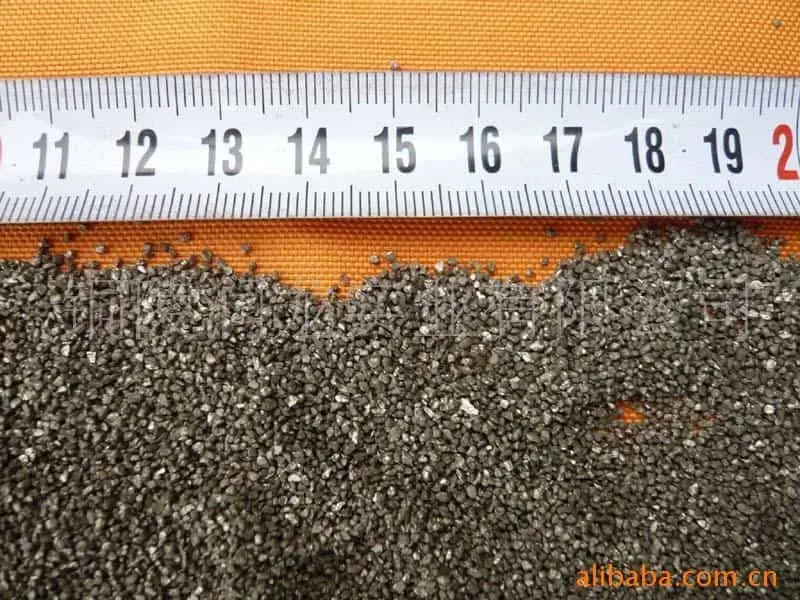Introduction
Pyrite sand is a type of sand that is composed primarily of the mineral pyrite. Pyrite is a sulfide mineral with the chemical formula FeS2.
Pyrite sand is found in various locations around the world, including beaches, rivers, and deserts. It is often formed when pyrite-rich rocks are weathered and eroded by water and wind.
Chemical Composition
The chemical composition of pyrite sand varies depending on the location where it is found. However, the main component is always pyrite. Pyrite is a sulfide mineral, which means that it contains sulfur. It also contains iron and oxygen.
In addition to pyrite, pyrite sand may also contain other minerals, such as quartz, feldspar, and magnetite. The presence of these other minerals can affect the color and texture of the sand.
Physical Properties
Pyrite sand is typically a dark brown or black color. It is a relatively heavy sand, with a specific gravity of around 5.0. Pyrite sand is also magnetic, which means that it is attracted to magnets.
The physical properties of pyrite sand make it useful for a variety of applications, including:
- As a source of iron ore
- In the production of sulfuric acid
- As a polishing agent
- In the manufacture of jewelry
High-quality Pyrite Sand supplier in 2024
If you want to get high-quality Pyrite Sand, but don’t know how to get it, you might as well try runlong. As a professional Pyrite Sand manufacturer, runlong can provide you with high-quality products and services!
Benefits of Pyrite Sand
Pyrite sand has a number of benefits, including:
- It is a renewable resource.
- It is a relatively inexpensive material.
- It is easy to process.
- It is a versatile material that can be used for a variety of applications.
Uses of Pyrite Sand
Pyrite sand is used in a variety of applications, including:
- As a source of iron ore
- In the production of sulfuric acid
- As a polishing agent
- In the manufacture of jewelry
- In the construction industry
- In the landscaping industry
- In the mining industry
Table 1: Chemical Composition of Pyrite Sand
| Component | Percentage |
|---|---|
| Pyrite | 46-52% |
| Quartz | 20-25% |
| Feldspar | 10-15% |
| Magnetite | 5-10% |
| Other minerals | 0-5% |
Table 2: Physical Properties of Pyrite Sand
| Property | Value |
|---|---|
| Color | Dark brown or black |
| Specific gravity | 5.0 |
| Magnetic susceptibility | Strong |
Success Stories
- A company in Canada is using pyrite sand to produce sulfuric acid. The sulfuric acid is then used to make fertilizer, which is used to grow crops.
- A company in the United States is using pyrite sand to make jewelry. The jewelry is sold in stores across the country.
- A company in Australia is using pyrite sand to make construction materials. The construction materials are used to build roads, bridges, and other structures.
Experience Tips
- When working with pyrite sand, it is important to wear a mask to avoid inhaling dust.
- Pyrite sand can be slippery, so it is important to be careful when walking on it.
- Pyrite sand can stain clothing, so it is important to wear old clothes when working with it.
FAQs:
Q. What is pyrite sand? A. Pyrite sand is a type of sand that is composed primarily of the mineral pyrite.
Q. What is the chemical composition of pyrite sand? A. The chemical composition of pyrite sand varies depending on the location where it is found. However, the main component is always pyrite.
Q. What are the physical properties of pyrite sand? A. Pyrite sand is typically a dark brown or black color. It is a relatively heavy sand, with a specific gravity of around 5.0. Pyrite sand is also magnetic.
Q. What are the benefits of pyrite sand? A. Pyrite sand has a number of benefits, including:
* It is a renewable resource.
* It is a relatively inexpensive material.
* It is easy to process.
* It is a versatile material that can be used for a variety of applications.
Q. What are the uses of pyrite sand? A. Pyrite sand is used in a variety of applications, including:
* As a source of iron ore
* In the production of sulfuric acid
* As a polishing agent
* In the manufacture of jewelry
* In the construction industry
* In the landscaping industry
* In the mining industry
